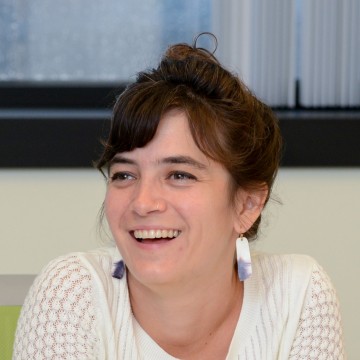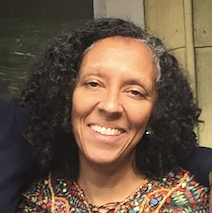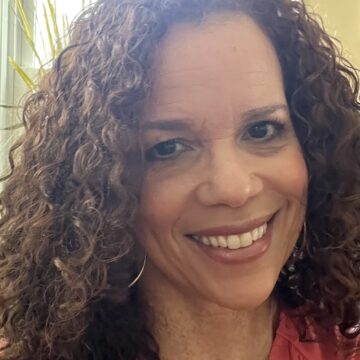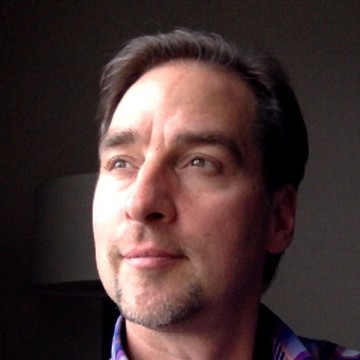Posted in IISC Outward-facing Thoughts
May 8, 2017
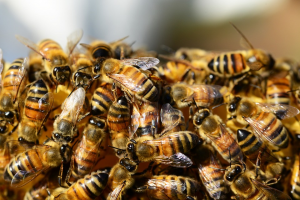
One of the many things I appreciate about adrienne maree brown’s new book, Emergent Strategy: Shaping Change, Changing Worlds, are the questions she asks over and over again: what are you learning from nature? how does nature inform your organizing and movement building efforts?Autumn Meghan Brown, interviewed in this book, talks about consensus. Building consensus is one of my favorite practices to teach in IISC’s Facilitative Leadership for Social Change workshop. People love consensus and people hate it; I’ve seen many people struggle with when and where consensus is the appropriate decision making method, and with how to facilitate an effective consensus decision making process.
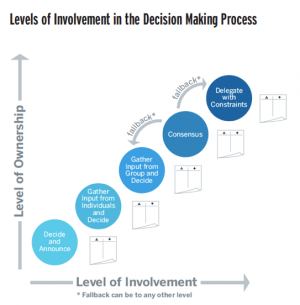
IISC’s Framework: “Levels of Involvement in the Decision Making Process,” above. © 2013 Interaction Institute for Social Change. All rights reserved.
I believe two reasons for this are that we live in a society with an unhealthy relationship to time, and with a low level of skill for collaborative group process. Autumn says these wise things about consensus:
- The history of consensus is deeply rooted in feminist and Indigenous movement work
- Building consensus is the work of collective liberation
- People want consensus to be an antidote to power, but it is not! Consensus does not require equal status; it requires equal voice.
So back to brown’s question, where does consensus happen in nature? What might we learn from nature about consensus?
Read More
November 22, 2016
Dreading the conversation over the Thanksgiving table this week?
Not looking forward to reconnecting with a friend, colleague or relative who thinks very differently than you?
How about inviting them into a different kind of conversation—one that enables folks to hear one another across deep divides and to share differing perspectives without inflicting excessive injury.
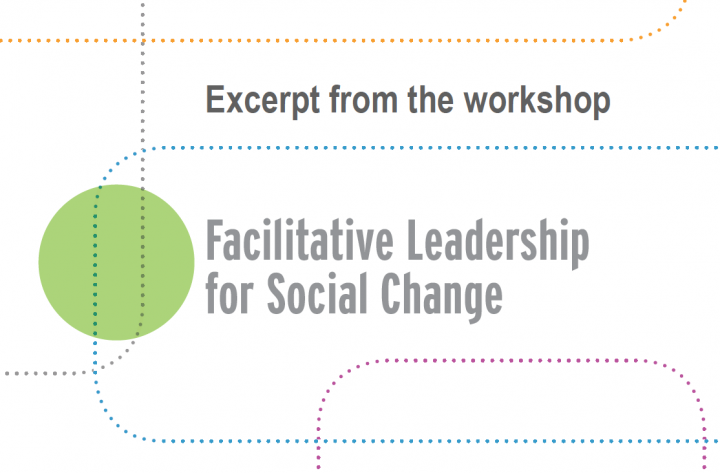
Try introducing the practices of deep listening to unlock a conversation where everyone can both speak their truth and hear other folks’ truths without convincing, berating, or arguing.
Try introducing the practices of deep listening to unlock a conversation where everyone can both speak their truth and hear other folks’ truths without convincing, berating, or arguing. It’s harder than you might think, especially when you think you are right. But remember, these loved ones probably think they are right, too. And, in entrenched conflicts, everyone generally tends to view themselves as the victim and others as holding all the power. Deep listening can be a powerful way to break through all of that.
In these times, deep listening seems more necessary than ever. So, take the risk to really listen to those around you without trying to convert them to your way of thinking. And ask them to take the risk to really listen to you too, without trying to convert you to their way of thinking. Some of what you hear may make your blood boil. Some may make you shake your head in wonder or despair. Some will make you want to ask more questions. This is good – seeking to understand does not imply you agree. Only that you are willing to explore. In the end, if you can use the guidelines shared below, you’ll create a safe space for conversation where you’ll end up still loving one another and you’ll be better informed and better able to engage in the tumult that is our political space this holiday season and beyond. Let us know what you learn!
Tips for Deep Listening
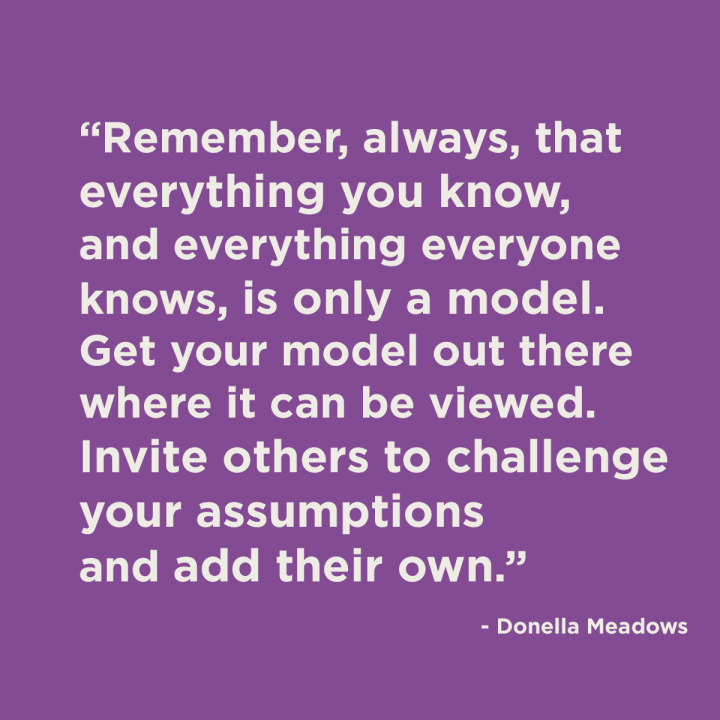
November 8, 2016
The Interaction Institute for Social Change invites you to join a National Call to Action for Unity and Dialogue after the U.S. elections. From the moment the election is settled, we call for a peaceful response from Americans, and from people all over the globe, to the results.
We call for a national conversation in living rooms, workplaces, boardrooms, schools, and government offices to foster healing from the divisions that have been deepened by this election, and to explore the common ties that bind us.
We call on Americans to explore with honesty and empathy the role that race, gender, and immigrant status played in this election to create a powerful wedge in our communities. We ask for commitments and plans to remove this wedge, which for too long has deeply threatened, burdened, and dismantled our democracy. It has fostered violence and death and a loss of opportunity and personal dignity. It has constructed glass ceilings and prevented our children from realizing their full human potential.
We call on Americans to talk to each other and not at each other. The use of social media in this election has perpetuated the false notion that we cannot talk to one another or understand one another across differences or party affiliation. This is not true. In the right places with the right facilitation, we can have meaningful and healing dialogue. Unity is not agreement; it is a decision to stand firmly as Americans to embrace ideas and opinions different from our own, and to disagree peaceably in order to foster understanding and better solutions.
We call all Americans into “Big Democracy” – the belief that the public is fully capable of working together to create sustainable, just, and equitable communities. We can provide peaceful ways for the public to come together and – as professor and social activist Carl S. Moore says – “struggle with traditions that bind them and the interests that separate them so they can build a future that is an improvement on the past.” We can create these conditions with shared leadership and shared responsibility, and with the power of love that resides deeply within each one of us.
With this National Call to Action, we call on all Americans to shift the conversation about what is possible. We call on all Americans to communicate, demonstrate, and create places of experimentation to show that it is possible for the public to come together to solve problems and create change.
Read More
July 24, 2014
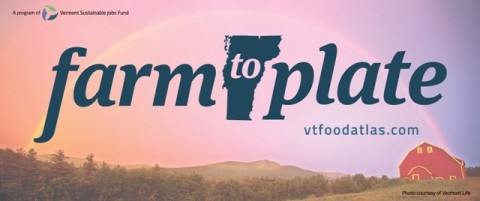
The following article appeared in an email newsletter from the Vermont Farm to Plate Network (VTF2P) one of IISC’s clients in network and collaborative capacity building. The author is Beth Cullen, co-chair of the Farm to Plate Consumer Education & Marketing Working Group and owner of Root Consulting, who attended the New England Food Summit that Cynthia Parker and I helped to design and facilitate. It is great to see the power of that two day convening and conversation continuing to ripple out into the region. VTF2P plans on integrating the conversation about equity into their upcoming October convening . . .
New England Food Summit targets social justice to drive change in the food system
The 4th Annual New England Food Summit, organized by Food Solutions New England, convened over 110 delegates in June to discuss racial equity and food justice in the region. Summit organizers unveiled the New England Food Vision, a regional aspiration to locally produce at least of 50 percent of the fresh, fair, just, and accessible food consumed by New Englanders by 2060.
Read More
July 17, 2014
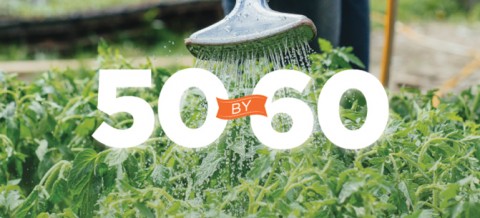
The following article appeared last month in the Northeast Sustainable Agriculture Working Group (NESAWG) newsletter. NESAWG is a 12-state network of over 500 participating organizations. Together, they unite farm and food system practitioners and allies to build a sustainable, just and economically vibrant region. From one network to another, the article profiles Food Solutions New England (FSNE), a network building effort now going into its third year of intentional development. It captures where FSNE was just prior to the New England Food Summit, which advanced connectivity and commitment to both regional action/identity and work for racial equity. NOTE: I have added links, bolded text, and pictures to the body of the article.
Read More
May 5, 2014
“Some of my relatives lived for decades in the North, in Kano and Bornu. They spoke fluent Hausa. (One relative taught me, at the age of eight, to count in Hausa.) They made planned visits to Anambra only a few times a year, at Christmas and to attend weddings and funerals. But sometimes, in the wake of violence, they made unplanned visits. I remember the word ‘Maitatsine’ – to my young ears, it had a striking lyricism – and I remember the influx of relatives who had packed a few bags and fled the killings. What struck me about those hasty returns to the East was that my relatives always went back to the North. Until two years ago when my uncle packed up his life of thirty years in Maiduguri and moved to Awka. He was not going back. This time, he felt, was different.” – Chimamanda Adichie
Read More
April 3, 2014
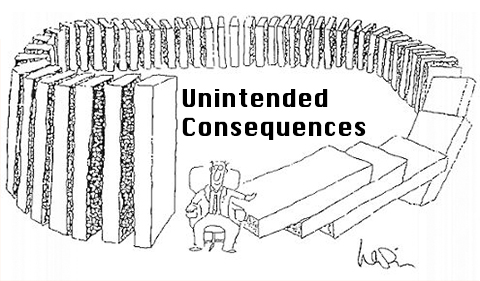
Another story about what can happen when we fail to hold a broader systemic view in our social change work . . . I was working with a food system-focused network the other day and the good news was reported that great strides have been made in reducing food waste, in large part because distributors and retailers are doing a much better job of tracking inventory and fitting it better to consumer demand.
On the other hand, it was also reported that this spells a real challenge for the “emergency food” world and food banks, which have been largely dependent upon excess food to provide for the growing number of people who are food insecure. Read More
December 24, 2013
“Transformation comes more from pursuing profound questions than seeking practical answers.”
– Peter Block

|Photo by Bilal Kamoon|http://www.flickr.com/photos/55255903@N07/6835060992/in/photolist-bpZtvb-8A6i9c-8p2AtP-do8Bez-do8JT3-7RiJTU-ao63dG-7Cjh9a-7Co7Fm-ihgH2m-9dXKU2-bgGa4c-8CkodQ-azGM3y-cBFFBS-8ChFDT-bX6EoZ-fPzNoo-9PBH3p-7GZn1X-9iKHnC-8nxop8-9tQh9o-9tMiYv-9tMj4F-7QpV8y-do8JVU-7Co7vW-7Gh8sv-8qQBZ9-eUDNUt-7Gh3sp-9ESmzs-8nAwhG-8nxom2-8nxonr-8nAwhf-8nAwgm|
Three of our IISC blogger-practitioners have been in conversation about 3 questions they are each carrying with them into 2014 to guide and develop their practice to support social change. We invite your reflections on and additions to these: Read More
November 6, 2013
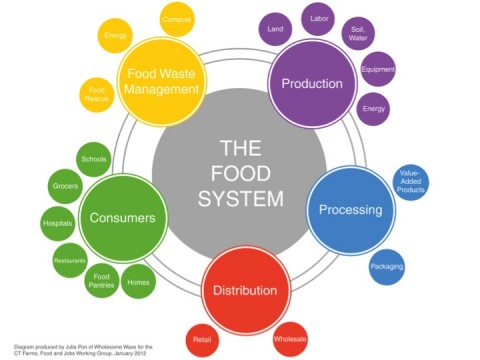
Last Friday, I worked with the Network Support Team (NST) of the Connecticut Food System Alliance (CFSA) to facilitate a gathering of over 100 food system and food security activists. This was the fourth convening in the past year and a half, and featured what have become typical elements of fostering connectivity between people (welcoming and introducing ourselves to new people, learning together, making offers and requests) and alignment around the CFSA vision. And to honor what has been growing in the network as both a call for and a question about the possibility of collective action, NST members Melissa Spear, Marilyn Moore, and Jiff Martin created the following exercise to stimulate people’s thinking about how the network could “change the game” in Connecticut and boldly advance the state towards a reality where “everyone has access to safe, nutritious, culturally appropriate, and affordable food.” Read More
August 28, 2013

Last Friday, as we closed our joint offering with the Center for Whole Communities, “Whole Measures: Transforming Communities by Measuring What Matters Most,” at Knoll Farm, participants and facilitators alike carried forward insights and ongoing questions about what wholeness is and what might help to create more of it in our communities and organizations. The timing was auspicious as the nation has been marking the anniversary of the March on Washington and reflecting upon the progress we have made towards wholeness as embodied in Rev. Martin Luther King Jr.’s dream, delivered in a speech 50 years ago today. Read More
July 10, 2013
“We are what we measure.”
– Whole Measures mantra

From August 20-23, IISC is excited to once again partner with the Center for Whole Communities to offer our jointly created workshop “Whole Measures: Transforming Communities by Measuring What Matters Most” at beautiful Knoll Farm in Vermont’s Mad River Valley. This summer’s offering is meant especially for New England-based and focused food system and food security advocates. This includes those working from different angles (production, distribution, access, public health) and scales (neighborhood, community, state, region). Read More
May 31, 2013
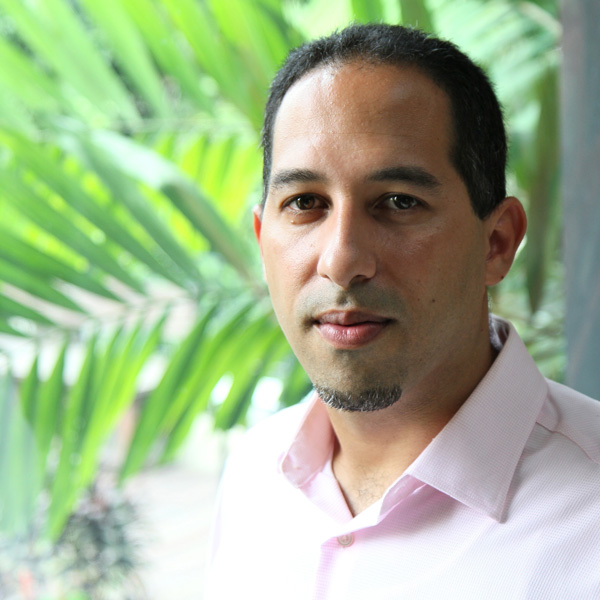
For the third consecutive year, Junxion Strategy is proudly sponsoring Social Change Institute at Hollyhock on Cortes Island, British Columbia. This is one in a series of articles about the conference.
The upcoming Social Change Institute will bring together approximately 100 passionate change agents from across sectors, geography, issues, generations, strategies and points of view for a five-day leadership and skill-building summit.
This experiential convening is designed for high impact and emerging leaders from nonprofits, government and mission-based enterprises who are seeking practical skills and networking opportunities to take their work to the next level.
Read More

